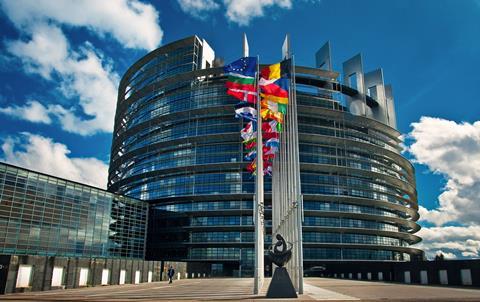A group of 41 prominent companies, including Nike, Heineken, PepsiCo, DFDS, Maersk, ChargePoint, Nestlé, Volta Trucks, and Kuehne and Nagel, have jointly penned a letter to European institutions urging for stricter CO2 standards in road transport.

The companies argue that more ambitious CO2 standards set for 2030 and 2040 would not only reduce costs but also expedite the large-scale production of zero-emission trucks.
The call for stricter CO2 standards was reported by Transport & Environment in an official statement. The letter was signed by a diverse range of stakeholders, including hauliers, shippers, logistics companies, and e-mobility providers. These companies emphasise that more ambitious CO2 standards in the upcoming decades will lead to a significant reduction in costs and facilitate the accelerated production of zero-emission trucks on a larger scale.
The European CO2 standards for vehicles have been a contentious topic. The signatory companies are urging the European Union to establish a clear deadline for ensuring that all new trucks are zero emissions. This is seen as a crucial step towards decarbonising the sector by 2050. The letter emphasises that all truck types should be subject to climate targets to encourage manufacturers to increase the production of zero-emission vehicles across all segments. It should be noted that the European Commission’s proposal currently exempts certain vehicle types, such as garbage and construction trucks, as well as some urban delivery trucks, which are relatively easier to electrify and offer air quality benefits in cities.
Archana Jagannathan, Chief Sustainability Officer at PepsiCo Europe, highlighted the shared responsibility of industry partners in achieving emissions reduction goals, stating, “PepsiCo’s ambition to reduce emissions by at least 40% by 2030 and become net-zero by 2040 largely depends on the decarbonisation efforts of our value chain partners, which includes third-party logistics.” Jagannathan added, “Therefore, the transition towards an affordable and emission-free movement of goods in Europe is our shared responsibility. We urge policymakers in Brussels to set more ambitious CO2 standards for trucks as it is not only a critical step towards achieving the EU’s climate neutrality goals but also a strategic move for the success of our industry.”
Sophie-Kim Chapman, Head of Decarbonisation at DFDS, stressed the importance of advancing the deployment of zero-emission trucks and infrastructure, stating, “It’s in all of our interests to push for more zero-emission trucks on the road, earlier, and for clear intentions regarding both trucks and infrastructure. This will get us faster to both emissions reductions and to cost parity with diesel, and it enables transport operators like us to plan ahead with more confidence.”


















